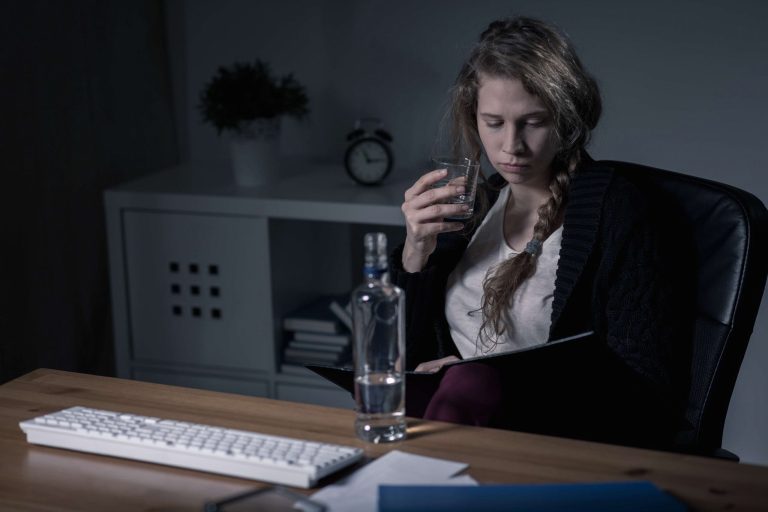Many who abuse alcohol often do it well into the night and oversleep into the next day. Then, as withdrawal from the drug or alcohol occurs there’s a big sleep-wake reversal which then needs to be addressed. “Typically, it’s advised to stop drinking alcohol around three to four hours before bed. This should give the body enough time to metabolize the alcohol and get it out of one’s system, allowing them to enjoy unaffected sleep,” explains Dr. Hsu. Preventive action through accurate worker history, including the administration of questionnaires to detect the presence of alcohol or sleep disorders, would help both the health of the worker and the increased safety of the worker and those working with them.
And though it may help in the short term, drinking alcohol before bed can actually lead to a night of horrible, restless sleep. The good news is that these sleep disruptions are temporary, and any insomnia you experience will likely resolve as you persevere through recovery. You may experience your most severe sleep disturbances in the first week, but most people find that it eases up with time.
Alcohol Dependence and Period Limb Movement Disorder (PLMD).
Different forms of therapy, mindfulness, meditation, or hypnotherapy, can address insomnia symptoms. Lifestyle changes such as avoiding alcohol hours before does alcohol cause insomnia sleep may be sufficient for treating mild, short-term insomnia. Individuals with mental health conditions are also more likely to develop insomnia.
Alcohol affects your sleep but not how you might think – The Washington Post
Alcohol affects your sleep but not how you might think.
Posted: Fri, 05 Jan 2024 08:00:00 GMT [source]
Specifically, insomnia may lead to initial and recurrent problem drinking, and heavy alcohol consumption may disrupt sleep and contribute to insomnia (see figure 2). There are some symptoms of withdrawal, including nausea, tremors, and depression. It is often partly caused by the coinciding sign of anxiety, which sends the mind racing and makes it incredibly difficult for the person withdrawing to sleep. If alcohol continues to disrupt your overall sleep quality, you may consider cutting it out entirely, or limiting your intake before bedtime. If you’ve stopped drinking alcohol, but are still having sleep issues, be sure to reach out to a sleep specialist. With extended use of alcohol over time, there can be long-term concerns, too.
The day after and long-term effects of alcohol
Alcohol can increase the quantity of non-REM sleep during the first half of the night, but it decreases REM sleep in the second half. If you’re turning to alcohol to help you sleep, you may be making the quality of your sleep worse. It can also negatively affect mood, which can, in turn, affect personal relationships. To review evidence of an association between disturbed sleep and alcohol use.
She is active within AASM and has served on numerous AASM committees, including the original Telemedicine Task Force. She also served as the inaugural chair of the Clinical and Consumer Sleep Technology Committee and is the current chair of the AASM Public Awareness Advisory Committee. Lindsay Modglin is a nurse and professional writer who regularly writes about complex medical topics, as well as travel and the great outdoors.
Alcohol and Obstructive Sleep Apnea (OSA).
Another way that depression could lead someone to drink alcohol is through changes in their brain as a result of depression. These changes can heighten the physiological “rewards” of alcohol and increase the likelihood that they will continue their pattern of drinking. However, alcohol can make these feelings and other symptoms worse over time, perpetuating the cycle of alcohol consumption and depression. Although none of the possible strategies may work correctly, many may help to lessen the symptoms.

However, a subset of patients may have fragmented sleep and disturbances of consciousness that predict a guarded prognosis for future episodes of DTs (Kotorii et al., 1982, Nakazawa et al., 1981). In addition to the electrophysiologic mechanisms of sleep, Borbely and colleagues postulated a two-process model of https://ecosoberhouse.com/ sleep regulation (Borbely, 1982). In brief, this model posits that sleep is a function of two independent mechanisms, namely homeostatic sleep drive and circadian rhythmicity. A mismatch between the normally synergistic circadian and homeostatic mechanisms may also lead to circadian rhythm sleep disorders.
